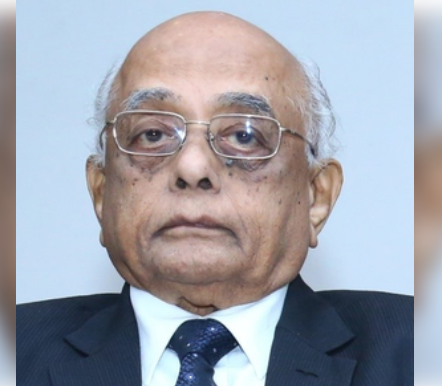Health
Dr. Rajagopala Chidambaram’s death ‘irreparable loss to Indian scientific community’

New Delhi, Jan 5
The death of veteran nuclear scientist, Dr. Rajagopala Chidambaram is an “irreparable loss to India’s scientific community”, said scientists on Saturday.
Chidambaram was an eminent physicist and one of India’s most distinguished scientists. He passed away at the age of 88, this morning at 3:20 AM in Mumbai.
"Dr. Chidambaram was a doyen of science and technology whose contributions furthered India's nuclear prowess and strategic self-reliance. His loss is an irreparable one for the scientific community and the nation," said Dr. Ajit Kumar Mohanty, Secretary, Department of Atomic Energy, in a statement.
“Chidambaram was a scientist and also a large-team leader on mega projects. This combination is not uncommon in the Department of Atomic Energy in India. His passing marks the end of an era in Indian science and technology of an individual who connected the earliest stages of India’s modern science to the present,” added K. Vijayraghavan, Former Principal Scientific Adviser in a post on social media platform X.
Dr. Chidambaram played a pivotal role in shaping India's nuclear capabilities and helped establish India as a nuclear power on the global stage.
He played an integral role in the nation’s first nuclear test in 1974 and also led the Department of Atomic Energy team during the Pokhran-II nuclear tests in 1998.
The renowned scientist held numerous prestigious roles throughout his illustrious career, including Principal Scientific Adviser to the Government of India (2001–2018), Director of the Bhabha Atomic Research Centre (1990-1993), Chairman of the Atomic Energy Commission and Secretary to the Government of India, Department of Atomic Energy (1993-2000).
“His tenure as Principal Scientific Adviser saw the launch of initiatives such as Rural Technology Action Group (RuTAG), which empowered rural communities through innovative technologies, Society for Electronic Transactions and Security (SETS), to contribute towards advancing India’s cybersecurity and hardware security infrastructure, and National Knowledge Network (NKN) to connect educational and research institutions across the country addressing issues with ‘Access to Knowledge,” said the Office of Principal Scientific Adviser to GoI, in a post on X.
His leadership was “instrumental in establishing the Nanoelectronics Programmes in India, which have paved the way for the current India Semiconductor Mission,” added V. Ramgopal Rao, Group Vice-Chancellor, BITS Pilani Campuses, in a post on X.
Born in 1936, Dr. Chidambaram was an alumnus of Presidency College, Chennai, and the Indian Institute of Science, Bengaluru.
Dr. Chidambaram was honoured with the prestigious Padma Shri in 1975 and the Padma Vibhushan in 1999.
He also received honorary doctorates from several universities and was a fellow of eminent Indian and international science academies.
Prime Minister Narendra Modi, and Union Ministers JP Nadda Jitendra Singh, Pratap Rao Jadhav, Mallikarjun Kharge, Leader of the Opposition, among others, also paid rich tributes to the veteran scientist.



































